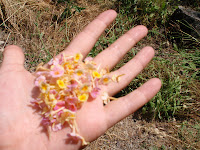
After the success from our first post in the VocaTube series, we present today the second post of the series that allows you to learn vocabulary in English with the best educational videos from YouTube.
Videos from this post are focused on the clothes and accessories topic, sorted from elementary to intermediate level. This list of videos includes a song, a video with the different kinds of shoes and a very funny video recorded in a shopping centre.
Remember that vocabulary can only be improved with practice, and listening through repetition. It’s difficult for everyone to understand from the beginning but you’ll notice that the more hours you listen to English, the better your understanding.
Vocabulary about clothes – elementary English
Link to the video on YouTube
Vocabulary for children in a funny song (The Clothing Song) – elementary English
Link to the video on YouTube
Vocabulary with clothes and accessories for women – elementary English
Link to the video on YouTube
Video that shows the vocabulary and spells every word, also recommended to review the English Alphabet – elementary English
Link to the video on YouTube
Vocabulary to describe clothes – intermediate English
Link to the video on YouTube
Vocabulary with the different kinds of shoes – intermediate English
Link to the video on YouTube
Funny video to see the sort of questions and answers used when clothes shopping – intermediate English
Link to the video on YouTube
Video that includes everything that you should know in order to become an expert in vocabulary related to clothes in English – intermediate English
Link to the video on YouTube
Video that shows different garments along with the English Alphabet. A very good video as it also shows the Phonetic Alphabet – intermediate English
Link to the video on YouTube
You have read this article VocaTube
with the title July 2010. You can bookmark this page URL http://apostolosmakrides.blogspot.com/2010/07/vocatube-vocabulary-about-clothes-on.html. Thanks!


















































